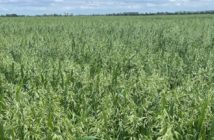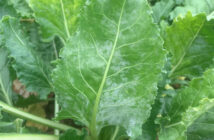When Paul Taylor retired from Agrii he was looking forward to retiring to the Cornish coast and spending more time with his fishing boat. However other people had plans for him. It wasn’t long before Adrian Hayter from Elsoms came calling and asked him to help mentor a young team through the choppy waters of the next few years as the head of the Agricultural Business Unit.
“It was an offer I couldn’t really refuse,” said Mr Taylor. “The pandemic and subsequent lock down has severely limited any potential retirement activities and I liked the idea of working for a company like Elsoms. The advent of technology like Zoom and Teams has given me flexibility and Elsoms is a progressive company with a lot going for it.
After the climate disasters of the last twelve months Mr Taylor is quietly confidant that the status quo with regards to cropping will be restored. “There was a lot of talk about an increase in the area of spring crops planted this year. However, the recent ‘early bird’ survey from AHDB and Andersons has pointed to a return to winter wheat with an increase of 28.3% of wheat on the previous season, which has resulted in a decrease of 30% in spring cropping. Also, there has been a big change in arable fallow land with 600,000Ha of extra cropping planted in the Autumn.”
“Of the varieties that have done well out of this year’s Recommended Lists, Merit and Astound come to mind. Merit is a Group 3 biscuit wheat and has impressed during a very challenging 2020 growing season. It is a low risk variety and performs particularly well in later drilling situations which gives growers more flexibility in the seemingly increasingly challenging sowing seasons. The consistently high performance of Merit over the last few years of trials has solidified its place on the AHDB Recommended List..
“With more promising varieties in the pipeline, such as Astound, we’re looking forward to offering UK farmers even more low risk and high performing wheat varieties in the future. This Group 4 variety will find its place as a specialist variety for the mixed farmer. With outstanding untreated yield, exceptional straw strength and quick spring development, it is ideal for growers who want a low-risk, low maintenance variety, adds Mr Taylor.
When it comes to winter barley, he points out that Bolton, is exceptionally high yielding and makes it onto the Recommended list this year. With a yield that is on par with most hybrid barleys, Bolton has excelled itself in the east. It is a highly consistent variety boasting resistance to all foliar diseases. This is the second recommended variety from Elsoms Ackermann Barley (EAB). Established in 2018, the EAB breeding programme secured the foundation for Elsoms to develop high-quality barley varieties in the UK with greater genetic diversity.
“Bolton is an impressive 2-row winter feed barley that yields on comparison with most 6-row hybrid. In untreated plots, we’ve seen that it stands exceptionally well. We have certainly seen yields consistent with AHDB in our trials for treated and untreated.
“As far as spring barley is concerned, Skyway from Nordic looks like being a step change and one for the future. Firefoxx is a malt distilling spring barley with good yields across the country, particularly in the north and Scotland. It has excellent mildew resistance and has consistency a low percentage of skinning in malt trials.”
The upsurge in the popularity of growing oats over the last few years has seen Elsoms building a strong understanding of the UK oat market. Working in partnership with Saaten Union and monitoring the uptake in oats as a health food, Elsoms feed this information back in to the Saaten Union breeding program. This has helped to adapt the breeding goals to the changes in consumer demand. Changes that have allowed Elsoms to announce the launch of Lion, a new Spring Oats variety in the UK.
“Lion offers UK growers the best combination of yield, quality while providing secure end-market options. With an impressive combination of kernel content, specific weight and hullability, Lion is clearly showing itself as the leader of the pack. At the same time Spring oats can also benefit the overall crop rotation by providing a take-all break. Lion looks very exciting and seed will be available from this Spring,” Mr Taylor says.
Like most people in the industry Mr Taylor is concerned about the effects on the industry the continued imbroglio over Brexit and its surrounding confusion and growers, breeders and distributors are still facing a great deal of confusion. January could see a drop in the base price of wheat by as much as £30/t depending on the outcome of the ongoing negotiations.
Despite this, he believes that there are opportunities out there for anyone willing to put their hand up. “For example, there is a big opportunity for farmers looking to grow multiplication seed. This could be a good niche for family farmers with their own equipment, but then of course, there is the cost of cleaning equipment and not everybody has segmented storage for the different varieties. Other options for growers could involve growing added value crops such as spelt or vining peas which market at around £450/t. Unfortunately, growing peas for human consumption will be considerably more difficult with the removal of Reglone from the market.
“There will also be a return to Spring cropping which to my mind is the right way to go. The new Agriculture Bill will also encourage this and the push for organics could well be be one for the future.”




